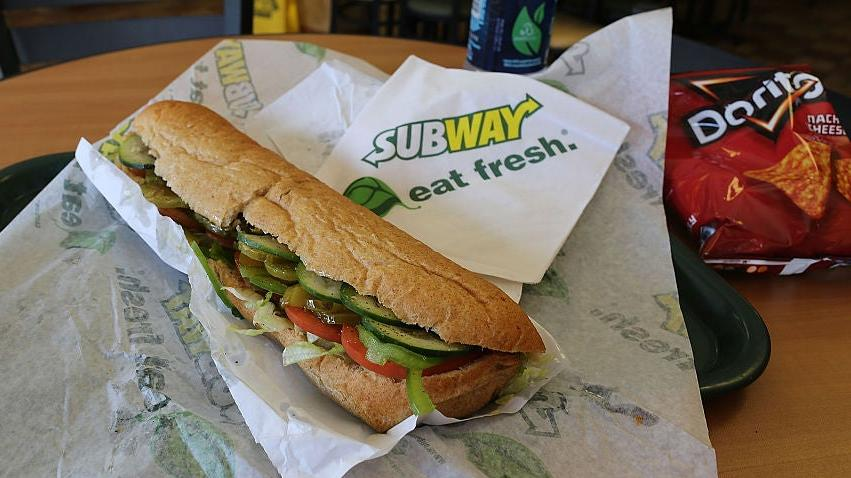Subway Franchisees Have A List Of Complaints A Foot Long
There was a time not so long ago that Subway was on top of the world. In 2015, it was the third-largest fast food chain in America, with 27,000 U.S. locations, far more than any other brand, and $11.5 billion in revenue. But 2015, it turns out, was the chain's peak. Since then, it has shuttered several thousand stores and dropped by a few slots in the rankings; it now hovers precariously around the $10 billion mark, poised to sink to a measly ten figures. (The pandemic can be blamed for some of this, but Subway's fortunes were already heading in this direction as early as 2016.) And Subway seems to be responding to this slump in the worst possible way: trying to recoup losses by screwing over franchisees.
Trade publication Restaurant Business recently published a thorough overview of the raw deal that Subway is offering its franchisees. First off, a little context: many franchisees have been at odds with Subway corporate for a long time now, most notably because of the economic infeasibility of the $5 footlong. While the company loves pushing this beloved promotion at as many locations as possible, the people running those locations simply can't make money on it. More recently, Subway has pushed for the rollout of cheese melts, a menu item that a group of franchisees has called out for being a risk to employee safety. For these and other reasons, the relationship between the parties has been frosty.
Now, Restaurant Business reports, Subway wants all franchisees to pay the company 25% more in royalties than the current rate, even as business continues to lag. While other comparable sub sandwich chains require 5% to 6.5% in royalties, Subway already charges 8%, and it wants to ramp that figure up to 10%. This would mean the typically franchisee would be paying Subway an extra $7,300 per year.
Subway is offering franchisees an alternative, though it isn't much of one. Instead of the raise in royalties, operators can instead stay at the 8% rate and accept a whole range of other conditions, designed to be so suffocating that it drives franchisees toward the 10% rate. Some of those conditions are listed below:
- A non-disparagement clause in the contract prevents franchisees, employees, or "anybody associated with an operator or their store" from saying anything negative about Subway
- If a franchisee wants to close a given location before the end of their lease, they are required to pay Subway three years' worth of royalties and advertising payments for that store (that amounts to to a six-figure payment by the average franchisee, just for the ability to cease operations)
- Operators can be fired for closing their Subway location for two days in a 12-month period
- Subway can dictate the store hours of any location and the price of any menu item, even if the price—such as in the case of the $5 footlong—is detrimental to the bottom line
- Subway could, technically, even prevent operators from using the word "Subway" to market their restaurant
If you were running a Subway restaurant, which deal would you pick: rock or hard place?
Perhaps most galling of all is that this new agreement comes only weeks after a group of more than 100 franchisees (operating 250 outlets) wrote an open letter to Subway ownership seeking a reduction in royalties. Responding to the letter, Subway stated that its sentiments aren't representative of "the vast majority of our dedicated franchisee network."
